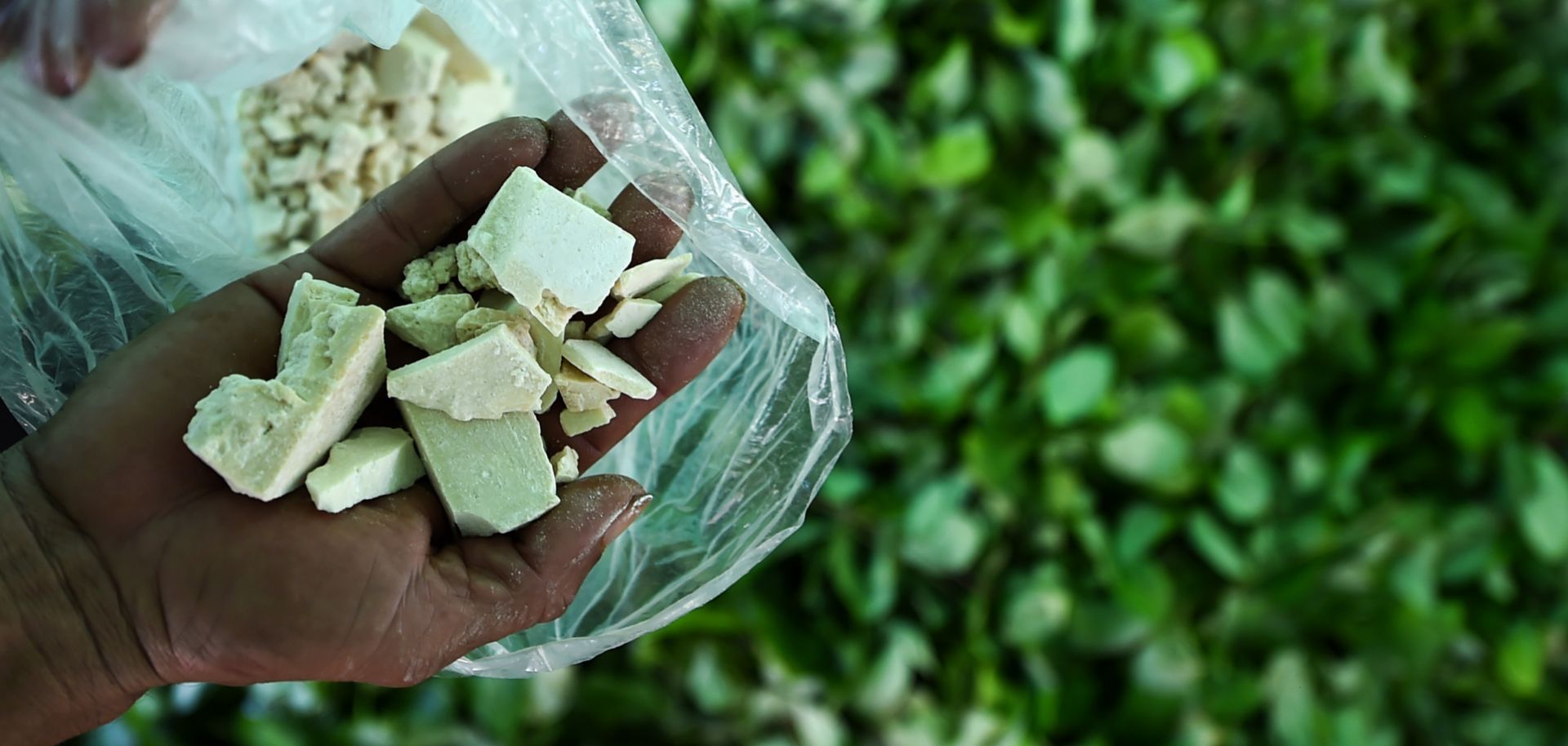ASSESSMENTS
Drug Trafficking Threatens Colombia's Peace Deal With the FARC
May 7, 2018 | 10:00 GMT

A Colombian farmer shows cocaine base paste at the end of the production process, Guaviare department, 2017. Cocaine is something of a local currency, and some members of the Revolutionary Armed Forces of Colombia (FARC) cannot seem to give up the money that comes from production and transit of the drug.
(RAUL ARBOLEDA/AFP/Getty Images)
Highlights
- Cocaine trafficking by senior members of the Revolutionary Armed Forces of Colombia will be the main threat to the government's peace deal with the rebel group.
- If the rightist presidential candidate Ivan Duque comes to power in August, the peace deal's legislative and administrative constraints will limit him to the use of criminal investigations to put greater pressure on the FARC.
- If investigations uncover more evidence of criminal wrongdoing against top FARC leaders, then the next administration will have to choose whether it wants to threaten the agreement by issuing arrest warrants or preserve the deal by taking a less aggressive approach.
Subscribe Now
SubscribeAlready have an account?
